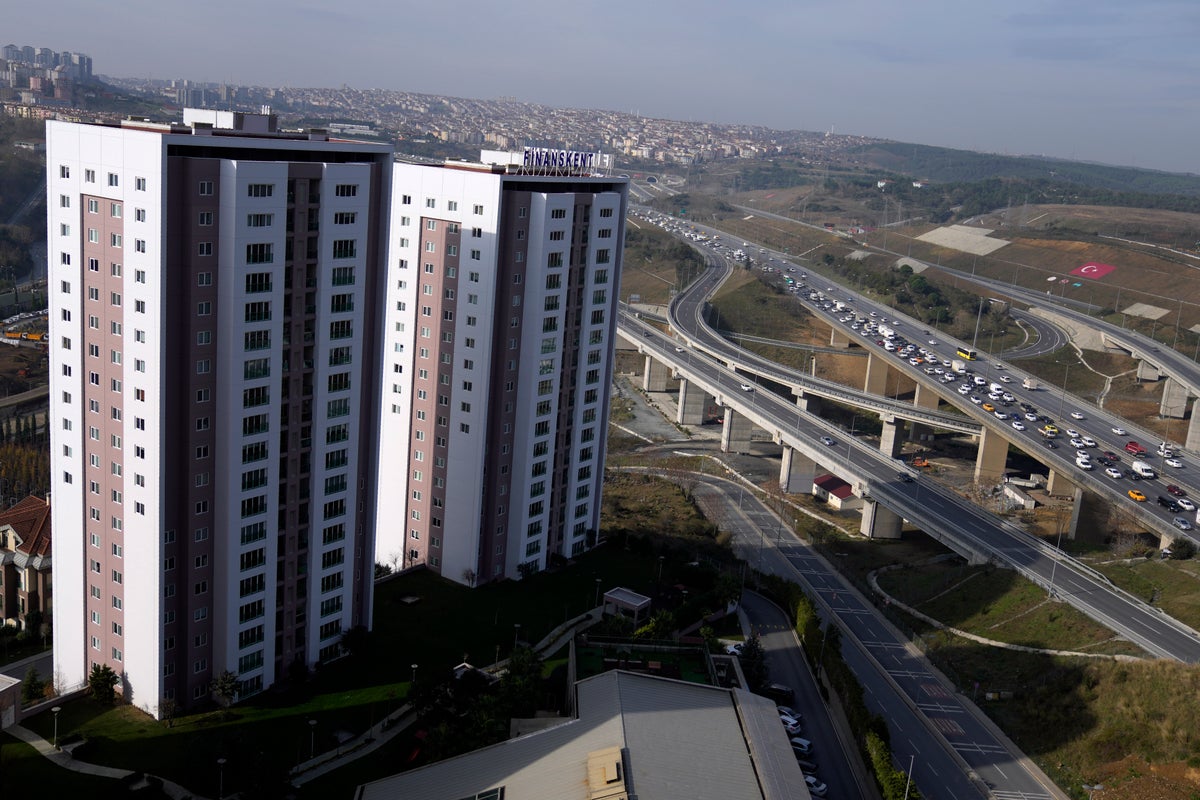
Hatice Erdal has been given a week to vacate her rental house that is due to be knocked down. The cleaner and her husband both earn minimum wage, and even with their combined salaries, they cannot find anything within their budget in Istanbul’s exorbitant housing market.
“I found a house, it was 12,000 lira ($645), another one was 10,000 lira ($537). I can’t pay that. ... What will I eat and drink?” Erdal said of monthly rents. “If the weather was warm, I’d live in a tent, but I can’t do that either. I don’t know what I will do.”
Economic turmoil driven by eye-watering inflation of nearly 85% has plunged Turkey into one of its worst property crises. Skyrocketing prices have made finding affordable housing to rent or buy an uphill battle for many, especially for millions of people earning a monthly minimum wage of 5,500 lira ($295) who also struggle to cover costs for food, energy and other expenses.
While increasing construction costs and inflation have pushed up housing prices globally, Turkey’s property crisis has been exacerbated by President Recep Tayyip Erdogan’s unorthodox policy of lowering interest rates despite high inflation — the opposite of traditional economic thinking. That has pushed many to invest in property to preserve their savings against rising inflation. With housing in short supply, prices have soared.
People have opted to buy real estate instead of keeping savings in low-interest bank accounts. Turkey’s central bank has slashed interest rates to 9% despite inflation that independent economists say reached 170.7% in November. Erdogan believes high borrowing costs lead to higher prices, whereas most economists say raising rates is the traditional antidote to inflation.
Foreign buyers also have inundated the Turkish property market, lured by the Turkish lira having lost some 28% of its value against the U.S. dollar since the beginning of the year — on top of taking an even worse battering in 2021. They also have the chance of acquiring Turkish citizenship through real estate purchases.
Home sales to foreigners increased by 20.4% between January and November, compared to the same period last year, according to the State Statistical Institute. A majority of the buyers were Russian citizens, followed by Iranians, Iraqis and Ukrainians.
The crunch pushed up the Turkish Housing Price Index by nearly 190% in September compared to the previous year, according to central bank figures. The yearly rise was a staggering 212% in Istanbul, Turkey’s most populous city.
Inflation and rising housing prices also have led to unprecedented increases in rent.
“It’s the first time we are experiencing such a thing, that we are seeing prices rise so much,” real estate agent Kenan Altinay said. “Each year, we’d see difference of 20% or 25%, but this year, it has reached 200%.”
In a bid to keep prices in check, the government has imposed a 25% cap on rent increases, but few landlords adhere to the rule as they try to keep their earnings on par with inflation.
Property lawyer Idil Bora says courts have been overwhelmed with eviction lawsuits due to disputes over rent increases.
“Civil Courts of Peace, which are tasked with dealing with these cases, have such heavy workloads that hearing dates are set for five or 10 months later,” she said.
It has left people like Duygu Ataman Gunay uncertain about what comes next. Gunay, an architect, is worried that her landlord will increase her rent more than she can afford when it’s up for review next month.
“I don’t know what awaits us in January,” she said. “Either our rent will increase by threefold or (the landlord) will put the house up for sale.”
She said the cost of rent, food and clothing has risen by two- or threefold and that white-collar workers like her haven’t received salary increases that keep pace with rising prices.
“Our purchasing power has fallen totally,” Gunay said.







